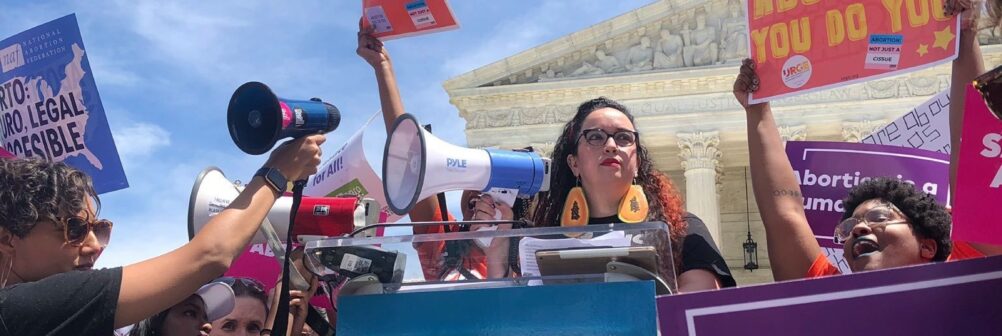Supreme Court Rules Employers Cannot Fire Someone for Being Queer or Trans
The fight for full LGBTQIA+ liberation goes onJune 15, 2020
Rachel Waters
rwaters@urge.org
706-831-1667
(Washington, DC) — Statement by Kimberly Inez McGuire, Executive Director of URGE: Unite for Reproductive & Gender Equity in response to the Supreme Court of the United States’ ruling that Title VII of the Civil Rights Act of 1964, which prohibits discrimination on the basis of sex, applies to all LGBTQIA+ people.
“By ruling that employers cannot discriminate against an employee simply because they are lesbian, gay, bisexual, queer, or transgender, today’s Supreme Court decision in Bostock v. Clayton County is a major victory in the ongoing fight for LGBTQIA+ liberation and gender equity. Even so, we cannot let our joy overshadow the new and ongoing threats to the lives and wellbeing of queer and trans people.
“When it was passed in 1964, Title VII of the Civil Rights Act — landmark legislation made possible in part by the leadership of Black queer and trans activists — made it illegal for employers to fire or otherwise discriminate against a person because of their sex. However, since Title VII did not specify whether “sex” also encompassed sexual orientation and gender identity, LGBTQIA+ people were still vulnerable to discrimination by employers in states that did not have laws explicitly preventing them from being fired simply because they were queer or trans. Thanks to today’s ruling, that protection is now guaranteed for LGBTQIA+ workers in every state.
“Yet, even in this victorious moment, we cannot overlook the tremendous threats to LGBTQIA+ people. On June 12, just days before the Title VII ruling, the Trump administration callously announced that it would roll back health care and health insurance protections for LGBTQIA+ people as had been laid out by the Obama administration in Section 1557 of the Affordable Care Act. If upheld, this new rule could have potentially deadly consequences for queer and trans people seeking medical care. For instance, a trans woman might be denied life-saving treatment for prostate cancer or a trans man may be unable to secure insurance coverage for a gender-affirming hysterectomy.
“The Trump administration’s move is made all the more horrifying by its timing amid a fight for Black lives in which young, Black trans people continue to experience disproportionate police violence and during a month set aside to celebrate and uplift the LGBTQIA+ community. It reminds us that, despite today’s ruling protecting LGBTQIA+ workers from discrimination by transphobic and homophobic employers, we still have a long way to go when it comes to protecting queer and trans bodies from the cruel whims of transphobic politicians.”
###

